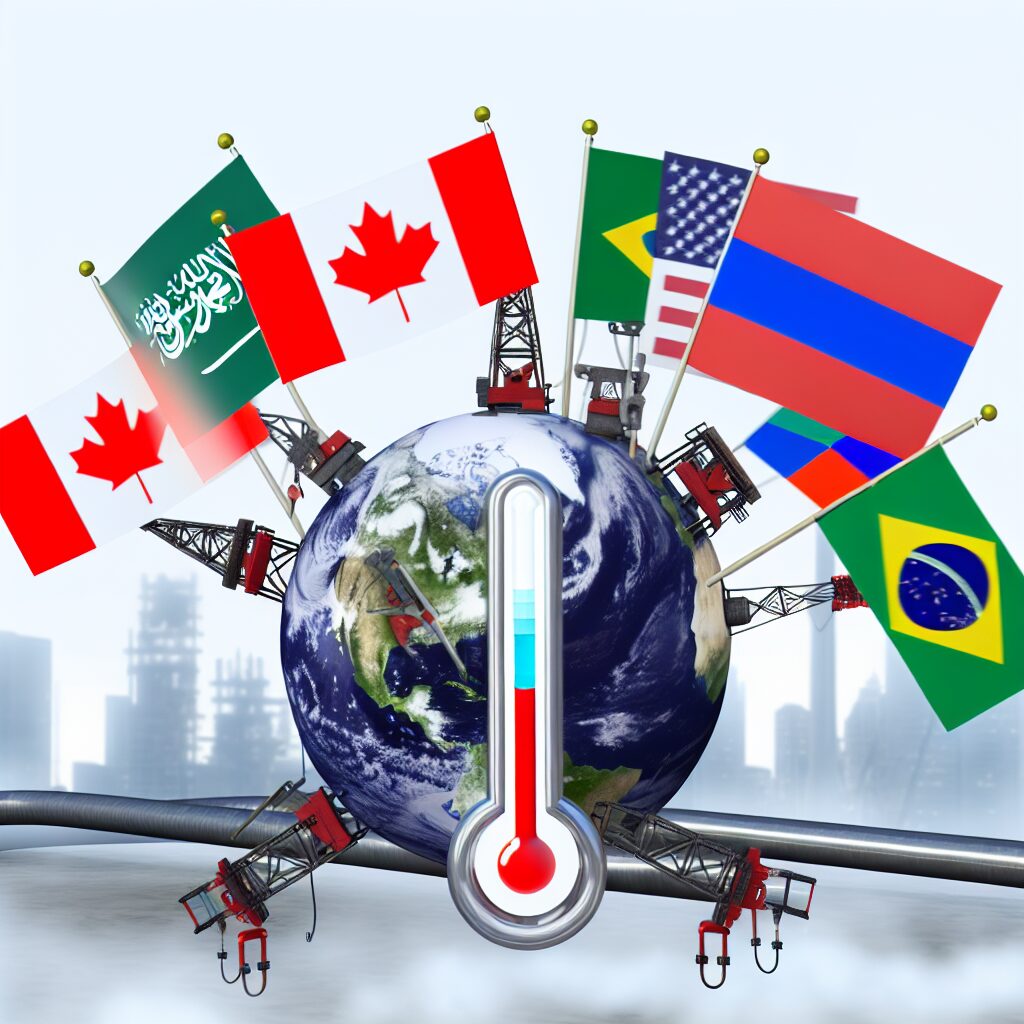In recent years, global consciousness regarding climate change has escalated, urging countries to unite in collective action. The Paris Agreement, a groundbreaking international treaty, was established to curb global warming and reduce greenhouse gas emissions. This ambitious accord set forth targets and roadmaps that nations must adhere to in their efforts to preserve our planet. However, it appears that some nations, particularly those heavily reliant on petroleum, known as petrostates, are hindering the progress towards achieving these critical climate goals. Among these is Canada, along with other major petroleum-producing countries.
Canada’s Role in Global Emissions
Canada has long been recognized for its vast natural beauty and abundance of natural resources. Unfortunately, its extensive oil and gas industry contributes significantly to global greenhouse gas emissions. Canada is among the highest per capita carbon emitters in the world, and its tar sands operations are especially notorious due to the massive amount of carbon emissions they produce. While the country has made some strides toward renewable energy and more sustainable practices, the economic dependence on fossil fuels makes it challenging to completely pivot away from these resources.
Economic Reliance on Fossil Fuels
The intricate relationship between economic growth and fossil fuels cannot be overstated for many petrostates. For a nation like Canada, the oil and gas sector is a major economic driver, providing jobs, trade revenue, and energy security. This dual dependence creates a significant conflict of interest when it comes to adhering to climate-conscious policies. Reducing oil and gas production could lead to economic instability, job losses, and a decline in trade revenue, posing a daunting challenge for policymakers.
The International Pressure
Internationally, the pressure is mounting on countries like Canada to escalate their commitment to the Paris climate goals. Environmental activists and policymakers alike argue that the continued expansion of fossil fuel infrastructures, such as pipelines and drilling operations, runs counter to the objectives set out in the Paris Agreement. These expansions are seen as a direct contradiction to the pledged greenhouse gas reductions. Many argue that rich countries like Canada must take a lead role in scaling down their fossil fuel reliance to set a global example.
Contradictions in Policy
One of the main criticisms is the apparent contradiction within Canadian policy. On one side, the government promotes green energy initiatives and carbon pricing mechanisms, but on the other, it supports the expansion of oil and gas projects. This dual approach is often seen as counterproductive and muddles the nation’s overall strategy to meet the Paris Agreement objectives. Critics argue that Canada needs to present a more unified front when it comes to climate policy and align its economic interests with its environmental commitments.
Global Implications
It’s not just Canada; other petrostates like Saudi Arabia, Russia, and the United States face similar dilemmas. The cumulative impact of these nations not fully committing to the Paris climate goals can drastically hinder global efforts to combat climate change. If these major players do not take decisive action, the likelihood of keeping the global temperature rise below 1.5 degrees Celsius becomes increasingly slim. This has far-reaching implications, from more frequent natural disasters to long-term ecological damage, affecting millions of lives worldwide.
Steps Forward
So, what can be done to reconcile this apparent impasse? Firstly, there needs to be a transformative shift in how petrostates like Canada think about their economic models. Diversification is key; investing in renewable energies, such as wind, solar, and hydroelectric power, could offer alternative revenue streams and employment opportunities. Furthermore, international cooperation and financial mechanisms, such as green bonds and climate finance, can alleviate some of the economic burdens associated with transitioning away from fossil fuels.
Transparency and accountability are other critical components. Governments must be transparent about their environmental impacts and hold industries accountable for their emissions. Policy frameworks should also be strengthened to include more stringent regulations and penalties for non-compliance.
Lastly, public awareness and participation can drive meaningful change. The more people understand the gravity of climate change and the role petrostates play, the more pressure they can exert on their governments to take significant action. Grassroots movements, community organizations, and environmental advocates all play a crucial role in shaping public policy and opinion.
In conclusion, while Canada and other petrostates are currently hindering the realization of the Paris climate goals, this scenario is not irreversible. Through concerted efforts, both at the national and international levels, it is still possible to steer these nations toward a more sustainable future. The time for action is now, and the world is watching.

